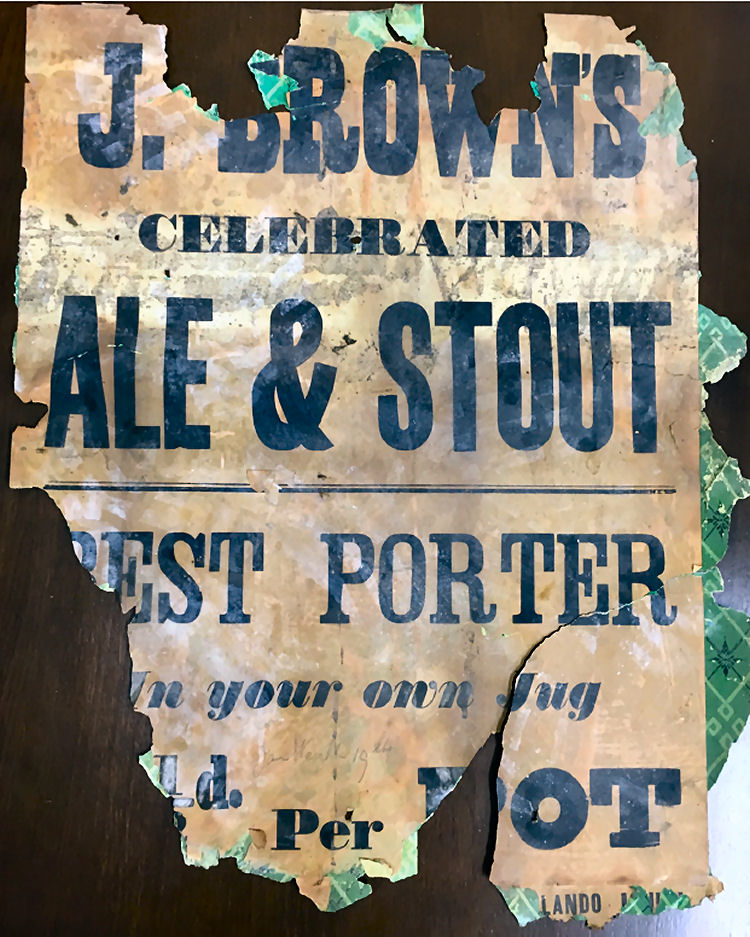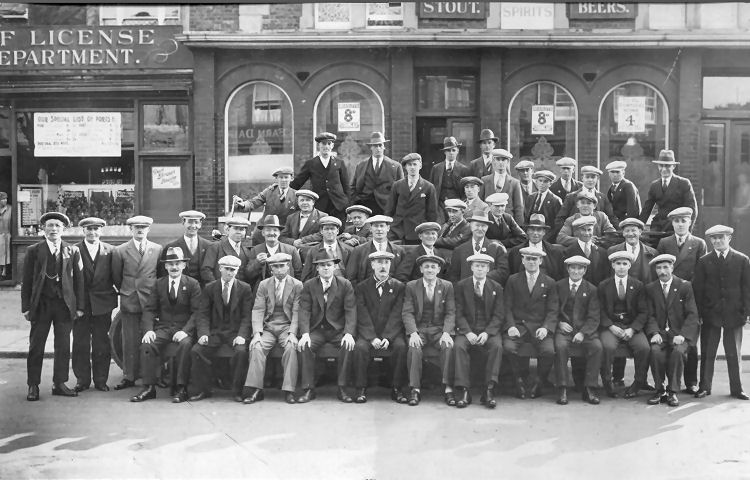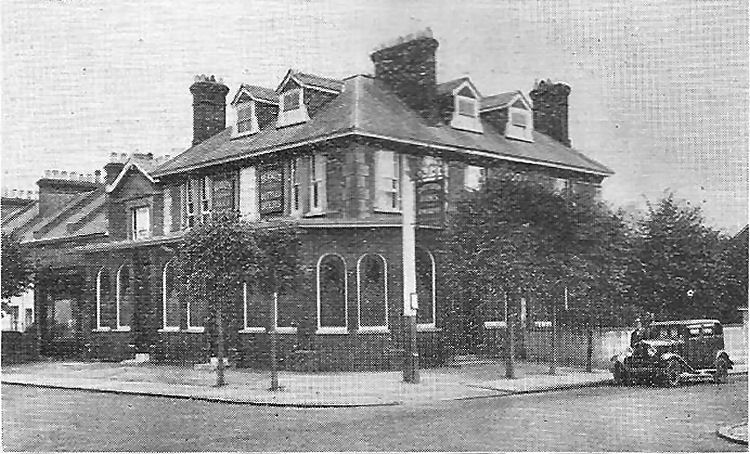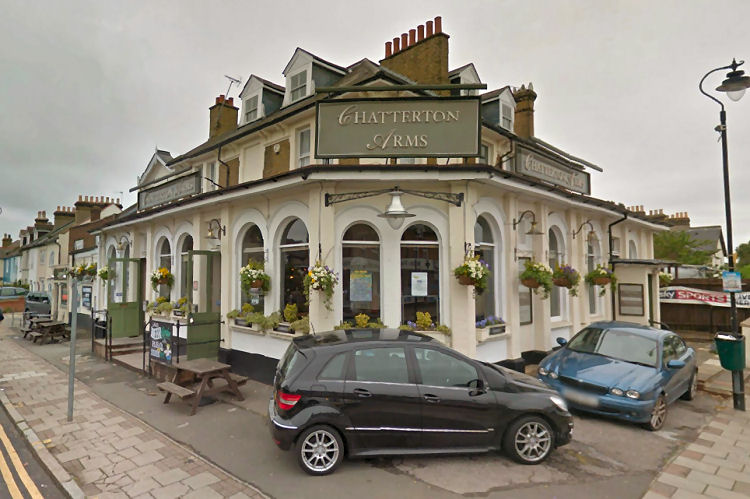|
From The History of Chatterton Village. Accessed May
2019.
Around 1869 a builder in the area was applying for a licence to set
up a rival beer-house to the "Hit
or Miss". In September 1869, Joseph Brown had his own licence
approved at the Petty Sessions in Locksbottom. His address at this point
(and in the 1871 census) was given as Pope Road, but this was probably
the property on the corner of Pope and Chatterton (where Life
Photography was most recently located and is soon to be a funeral
service). This was where the Chatterton Arms was located throughout the
1870s.
Some accounts have suggested that the "Hit
or Miss" was the original name of the "Chatterton Arms" and that
they were the same pub. This seems highly unlikely given that Carter had
his licence revoked a year after Brown had been granted his. Moreover,
Brown’s application had been granted this. Moreover, Brown's application
had been opposed (in vain) by the "Hit
or Miss." It is a lot more likely that they were rivals for a while
until Carter's establishment was shut down. They might even have been
neighbours: in the 1870 Strong’s directory, Brown’s address is listed
next to Carter’s "Hit
or Miss," suggesting they were next door to each other.

The above poster, advertising “J. Brown’s Celebrated Ale & Stout -
Best Porter - In your own jug” was discovered in August 2017 during the
renovation of 67 Chatterton Road. This was the original location of
Joseph Brown’s beer-house - later to become the "Chatterton Arms" -
between c.1869 and c.1882. The property is also fitted with a cellar,
which may have been used by Brown for brewing his beer. I am grateful to
Nigel Burke for showing me around the cellar and also for discovering
and sharing this poster.
In its early years, there would not have been much to the Chatterton
Arms, if indeed it was anything more than a residence at which beer
could be consumed, and Brown traded as a grocer too, as well as having
seemingly kept up his work as a builder. The ‘Chatterton Arms’ name
first appears in the 1876 Strong’s directory. With the extension of
Chatterton Road in the late 1870s, Brown took the opportunity to
relocate the Chatterton Arms to new land at the corner of Walpole Road,
where the pub stands today.
This seems to have been a shrewd move, establishing a purpose-built
pub right in the middle of the newly-extended road, at the heart of a
growing area with evident demand for a drinking establishment. The new
pub cost £2,000 (in the region of £100,000 in today’s prices) to build
and seems to have taken longer than much of the other development in the
road around this time, the Browns moving in only in about 1883. In its
new, much grander building the pub was renamed the "Chatterton Hotel" -
although the new name lasted only until 1890, when it reverted to the "Chatterton
Arms."
The "Chatterton Arms" appears to have done a roaring trade at the
heart of this growing population of largely working class families with
a preponderence of builders, labourers and gardeners. It is worth noting
too that there was plenty of competition for pub trade - within about 10
minutes’ walk in various directions were situated the "Crown
Inn," the "Five Bells,"
the "Bricklayers’
Arms" and the "Chequers."
There were also various attempts in the 1870s to sell a corner plot at
the junction of Chatterton and Pope Road for the erection of a ‘tavern’,
although this does not seem to have found any takers, so perhaps it was
felt that the "Chatterton Arms" had the market covered.
In 1886, Brown died and his widow, Mary Ann Brown, took over as
landlady. Mrs Brown made strenuous efforts over the years ahead to
extend the initial beer licence so that she could serve wines and
spirits too, but was repeatedly refused by the Bromley Bench. The
Maidstone Journal of 7 October, 1890, records one such application being
considered at the Bromley Licensing Sessions.
According to the newspaper report of the hearing, her lawyer, Mr
Gregory, ‘thought the Bench would say that the time had now arrived when
this house should have a full licence. He was quite sure that if the
Bench would appoint a committee to view the house, they would say it was
one which was eminently fitted to have a full licence. The house, which
was built at a cost of £2,000, stood back from the Bromley high road.
The applicant had held the licence for 20 years, and it was surrounded
by no less than 314 houses, the majority of the occupants of which had
signed the memorial in favour of the licence... The applicant was
constantly being asked for spirits.’
This was not the first time the application had been made, and Mr
Gregory argued that a new road had been built since the last. But the
Bench was unmoved and seemed to think that provision in the area was
sufficient already; the next nearest pub, the "Crown,"
was only 543 yards away. Not until 1906 was Mrs Brown granted a wine and
spirit licence - at least 16 years after first applying.
|



